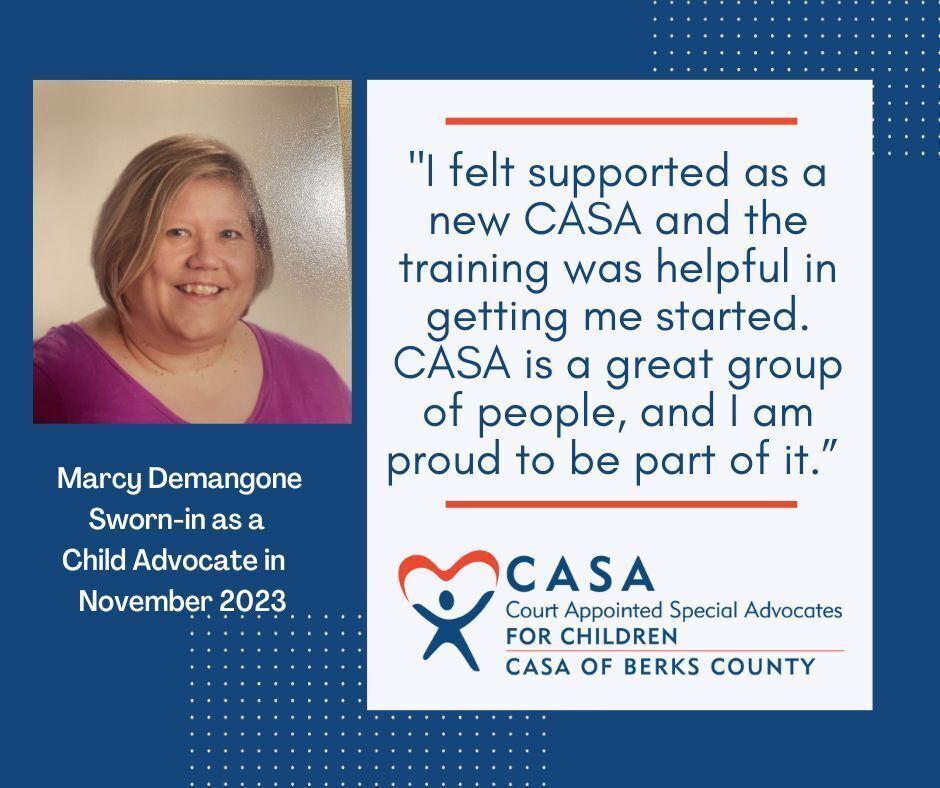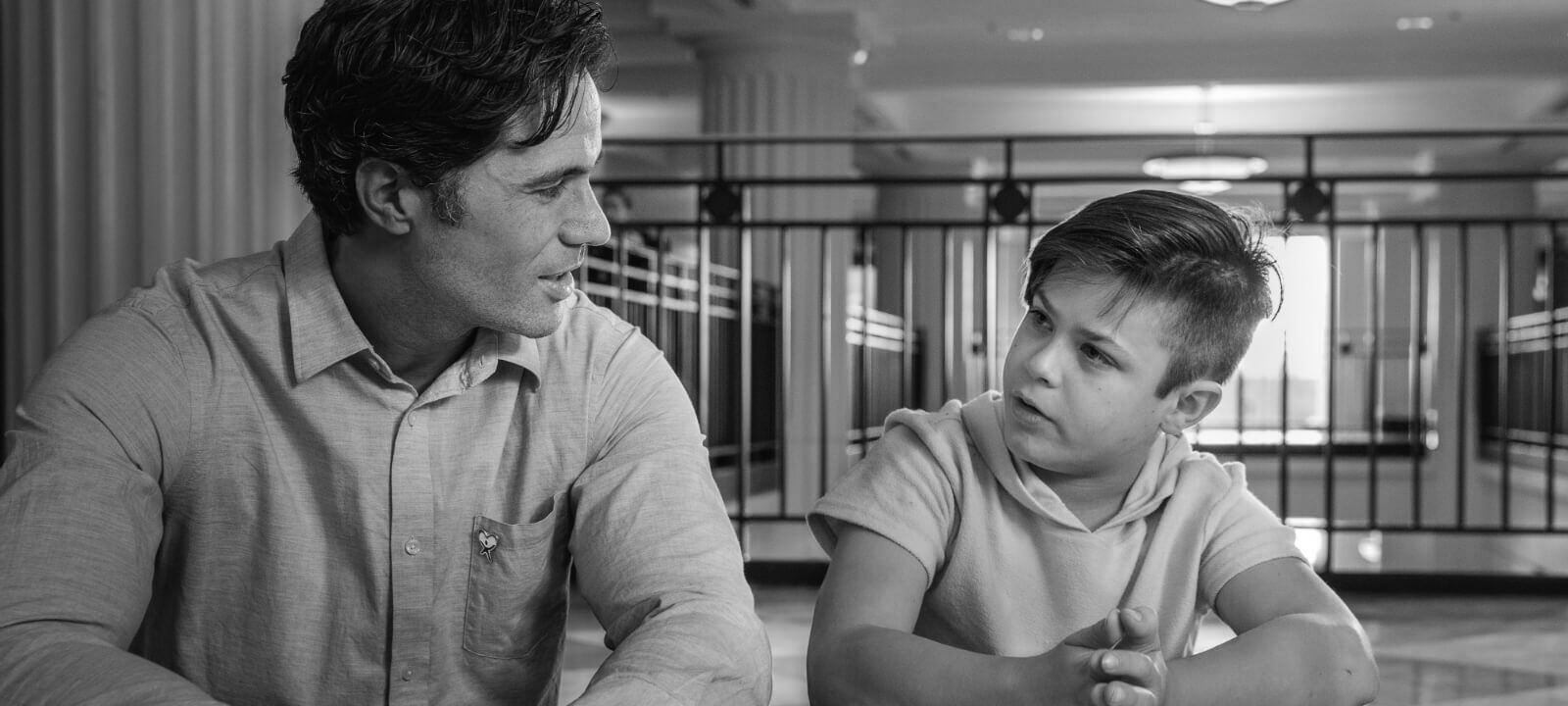
From School Psychologist to CASA Advocate: Marcy’s Journey of Lifelong Service
Meet Marcy Demangone: After a career dedicated to supporting children, Marcy continues her advocacy as a Court Appointed Special Advocate, offering stability and hope to kids in need.
1.)Tell me a little bit about yourself. ie. Age, work experiences, educational experiences, children or no children, interesting life experiences etc…..or whatever you want to share.
I'm Marcy and I'm 63 years old. I have been married to John for 38 years and we have two sons - Nicholas and Nathan. Nathan is married to Caroline; they live in York County, PA on a farmette with dogs, cats, chickens, ducks, and a quail.
My original job was as a school psychologist. I earned my master's degree in school psych from Alfred University in Alfred, NY. Prior to that, I graduated from Bloomsburg University with a BA in psychology. After working as a school psychologist for a number of years, I switched gears and worked in an agency which supported crime victims; at that time, I also worked as a therapist for children who had been sexually abused as well as their non-offending parents. At Kutztown University, I worked to earn elementary school counseling certification. Following that, I served as an elementary school counselor for 20 years.
2.)What made you decide to take the steps to reach out to become a CASA?
After retiring, I knew I needed to keep busy! I also knew that I wanted to continue to work with children. The CASA program sounded so awesome! Having worked with kids who had been abused, I knew that they faced a difficult journey, particularly in the court system. I thought that perhaps I could be that stable influence in the lives of those kids.
3.) Did you find that the CASA classes were enough to get you started with your first case? Did you feel supported?
I have absolutely felt supported! Yes, the classes were sufficient to get me started.
4.)How nervous were you to meet the child involved in your first case? Does it get easier?
I don't recall feeling nervous about meeting the child in my first case. Honestly, I was feeling a bit more anxious about meeting the parent! After establishing rapport with my child, the relationship grew, and it was easy to interact with her.
5.) How long have you been a CASA volunteer and how many cases have you had?
I was in the Fall of 2023 class. I’ve been a CASA for a year. I am currently involved in my second case.
6. )How do you fit being a CASA volunteer into your busy life?
Well, since I have retired, I do have a fair amount of time on my hands. It makes it easy to schedule visits since I don't have to work around a work schedule.
7.)With all the different people involved in a child’s case: family, foster family, institution, school, doctor, casework’s etc… How do you stay organized? Can you share any tips that would help a new CASA volunteer?
Being organized definitely helps facilitate my work as a CASA! I use index cards to record all of the important people's names and contact info. Then, I make a file for each child. After each visit, I make a short note regarding what we did and put that in the file. I have also learned that it is super helpful to go directly to the CASA software following any visit, contact, court, etc. There is a lot to remember, but I have found that if I complete my case notes and all of the software entries right away, I stay on top of my case.
8.) Is there an experience or a child’s action, in one of your cases, ever said or done something that has made you feel this is why I became a CASA?
Just getting a hug from the child makes it all worthwhile!
9.) We all know that becoming a CASA is not all butterflies and roses so what would you say is the hardest thing about being a CASA and what keeps you coming back?
In my experience, the most difficult part of being a CASA is the dearth of information from the caseworkers. I totally understand that they are extremely busy and have many cases, but I have been disappointed by the communication. For example, the child in my first case was abruptly sent to NJ to live with family members. I was not informed of this and so never had an opportunity to say good-bye or bring any closure to the case. That made me sad. But, the children who need and benefit from a CASA have no control over that and deserve an advocate.
10.) Anything else you would like to share would be GREAT! You could completely ignore these questions and write your own thoughts and feelings about being a CASA.
I am so grateful for such a dedicated and amazing staff at CASA! From providing emotional support to helpful information, they are wonderful! It's a great group of people! I'm proud to be a part of it!


